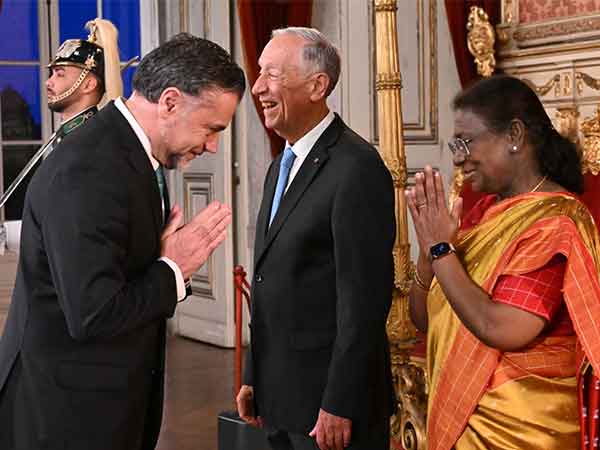"Tell us if our loved ones are alive..." Pak woman seeks safe return of forcibly disappeared brother
Jul 01, 2023

Karachi [Pakistan], July 1 : Hundreds of people, who lost their family members, friends and loved ones to enforced disappearances, took part in a protest organised on Eid by the 14-year-old daughter of Dr Deen Muhammad Baloch.
Dr Baloch was abducted in a military vehicle on June 28, 2209. Since then, nothing is known about his whereabouts.
"Family members of victims of enforced disappearances are protesting for the safe recovery of their loved ones from Pakistani military torture cells," tweeted Munir Mengal, who remains engaged in lobbying for the rights of Baloch people. Mengal is the president of the Baloch Voice Association NGO based in Paris, France.
Many citizens delivered speeches during the protest and among them was Seema Baloch, sister of Shabbir Baloch, the boy who forcibly disappeared from Gowarkop, Balochistan on October 4, 2016.
In her speech, she urged the Pakistan officials to at least inform the family members of victims of enforced disappearances, if their loved ones were alive.
She lashed out at Pakistan leaders Imran Khan, Maryam Nawaz Sharif and Shehbaz Sharif asking, "What about all those promises and responsibilities you owe to us? The least you can do is inform us if our loved ones are still alive."
Notably, the protest was organised by Sammi Deen Baloch, daughter of Dr Deen Muhammad Baloch.
Recalling her father's abduction, she said, "On June 28, 2009, at about 1 am, security personnel in plain clothes broke into the hospital where he was working. They beat, blindfolded, and hand-cuffed him and threw him into a military vehicle and took him away. Since then, nothing is known about his whereabouts."
For the past several years, the issue of forced abduction and disappearance in Pakistan has remained a problem.
At the beginning of 2023, the monthly report of Paank, the Human Rights Department of (Baloch National Movement) BNM stated that Pakistani forces forcibly disappeared 41 people from Balochistan, including 18 students and a journalist.
While 14 forced missing persons were released from the torture cells of the Pakistan army after severe physical and mental torture. The district profile of 41 people suggests that the majority of disappearances occurred in the districts of Kech-11; followed by Quetta-7 and Noshki-5, the Afghan Diaspora reported.
According to Paank, in the months of December 2022 and January 2023, the cases of extrajudicial killings and enforced disappearances significantly increased in Balochistan. The report further states that the current trend of extrajudicial killings and enforced disappearances, along with the inhuman and cruel use of torture, is a slap on the international community and guardian of human rights all over the world, the Afghan Diaspora reported.
Balochistan's disputes with Pakistan date back seven decades after being denied a fair part of the province's natural resources and a series of military operations. According to Baloch nationalists, the province was militarily taken in March 1948, against the desire of the population.
Balochistan's rising ethnonationalism resulted in insurgencies in the late 1950s and early 1960s. The continuing war in Balochistan erupted under Pakistan's military ruler Pervez Musharraf, with the 2006 assassination of nationalist leader Akbar Bugti igniting the most wave of Baloch resistance.
As reported by the Afghan Diaspora, amongst various issues of resource exploitation; marginalization of Baloch people; absence of freedom, etc, the malice of enforced disappearances, covertly sponsored by the Pakistani state and military have been of serious concern. For the past 20 years, the people of Balochistan have experienced enforced disappearances.
The international community must take action to hold Pakistan accountable and to ensure the protection of human rights for all. The UN and other international organizations must work to monitor and investigate these cases, and to provide support and assistance to the victims of torture, and their families, the Afghan Diaspora stated.
Enforced disappearances rose when the then military ruler General Pervez Musharraf overthrew Prime Minister Nawaz Sharif's government to form his authoritarian regime in 1999. Thousands of people from all age groups started to disappear in Balochistan. In March 2011, the Commission of Inquiry on Enforced Disappearances (COIOED) was formed to work on the issue. According to figures released by COIOED in July 2022, a total of 8,696 cases of missing persons have been reported. While 6,513 of these cases have been solved, 2,219 are still pending, the Afghan Diaspora reported.



















